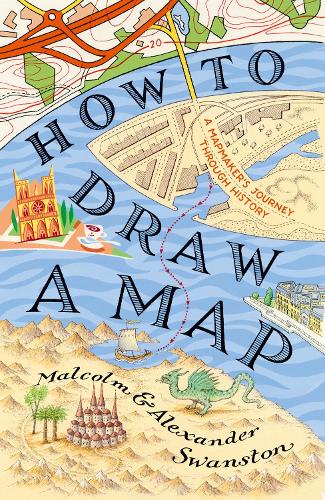
How to Draw a Map
(Hardback)
Publishing Details
How to Draw a Map
By (Author) Malcolm Swanston
By (author) Alex Swanston
HarperCollins Publishers
HarperCollins
9th October 2019
United Kingdom
Classifications
General
Non Fiction
Cartography, map-making and projections
526
Physical Properties
Hardback
288
Width 159mm, Height 240mm, Spine 23mm
600g
Description
How to Draw a Map is a fascinating meditation on the centuries-old art of map-making, from the first astronomical maps to the sophisticated GPS guides of today.
Maps have influenced humanity in many unexpected ways: life, death, sexual reproduction, espionage, war and peace. How to Draw a Map traces the story of mapmaking cartography from the first scratchings on the cave wall to the detailed high-tech navigator. This is the story of human conceptions, often misconceptions, of our world. It is also a very personal story about a mapmakers journey through life the exciting new perspectives and the occasional misadventures.
Over the last 5,000 years societies and empires have risen and fallen; most, if not all, attempt to record their own visions of our world. In the 15th century, Europeans developed a global reach with their oceanic ships, exploring outward into the world, revealing new possibilities, peoples and opportunities. Mapmakers recorded this journey, revealing to us a window into past triumphs and disasters. The story continues into our own day when diplomats carve up our globe, presenting what we now see as the modern world.
In How to Draw a Map, father and son cartographers Alexander and Malcolm Swanston demonstrate the skill, creativity and care involved in the timeless art of creating maps and what these artefacts reveal about the legion of mapmakers who went before us.
Author Bio
Alexander Swanston and Malcolm Swanston have been writing about and mapping history collectively for over 30 years, working on subjects ranging from ancient Rome to Vietnam and beyond. They have researched and written about World War II for many years and have mapped the key battles and events that took place between 1939 and 1945. They have recently produced books on a range of subjects, including The Atlas of the Civil War, The Historical Atlas of the Bible, and The Historical Atlas of Knights and Castles.
